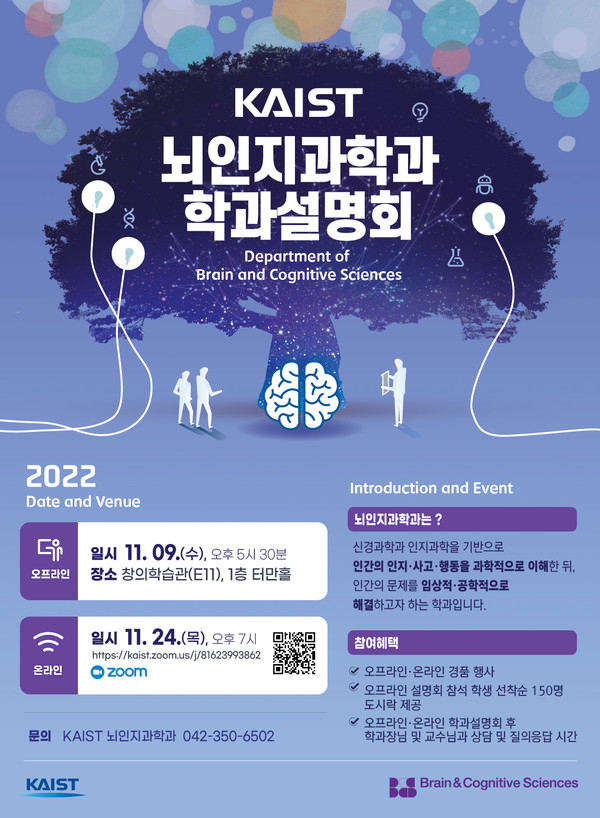KAIST has announced the establishment of the Department of Brain and Cognitive Sciences (BCS) and has officially begun offering its courses to undergraduate students. Beyond merely understanding the biological structure and function of the brain, the new department aims to explore humans on the whole and their interactions with other humans and the world.

Many have questioned the differences between the existing Department of Bio and Brain Engineering (BBE) and the new department. While BBE and BCS both have their basis in brain engineering, the former focuses on the bioengineering approach, while the latter concentrates more on the humanistic approach — psychology, linguistics, and ethics — as well as a medical engineering perspective — neurology, psychiatry, and rehabilitation medicine. The biggest distinguishing factor of this department is that it welcomes students from diverse majors, even those of liberal arts such as ethics, philosophy, and psychology. Dean Jae Seung Jeong highly encourages students with interest in brain science to apply even if they lack the expertise as they can still learn the basics in the undergraduate program.
The department delineated four distinct tracks within its major: Cellular and Molecular Neurobiology, Theory and Calculation Systems of Neuroscience, Cognitive Science on Humanities and Social Science Basis, and Clinical Brain Engineering. Some undergraduate classes to be offered are “Philosophical Issues in Brain and Cognitive Sciences”, “Neuroscience of Machine Learning”, and “Genes, Circuits, and Behaviors”. Graduate school courses go into further depth to explore areas such as “Neuroprosthetics” and “Digital Therapeutics”. Students will take classes in the KI building (N4), the “Meta Convergence Building” currently being constructed near the Applied Engineering Building (W1), and also in the New York campus; the last two buildings are planned to be established by 2023 and 2025, respectively. Dean Jeong expects students from the department to contribute to mankind through practical initiatives such as start-ups and distributive research, and even impact fields such as law and economics.
The Department of Brain and Cognitive Sciences has recruited graduate students with diverse majors such as Brain Sciences, Cognitive Sciences, and Clinical Neuroscience from July and will begin to accept undergraduate students from Spring 2023. The department introduction event was held offline on November 9 and will be held online on November 24 via Zoom.

